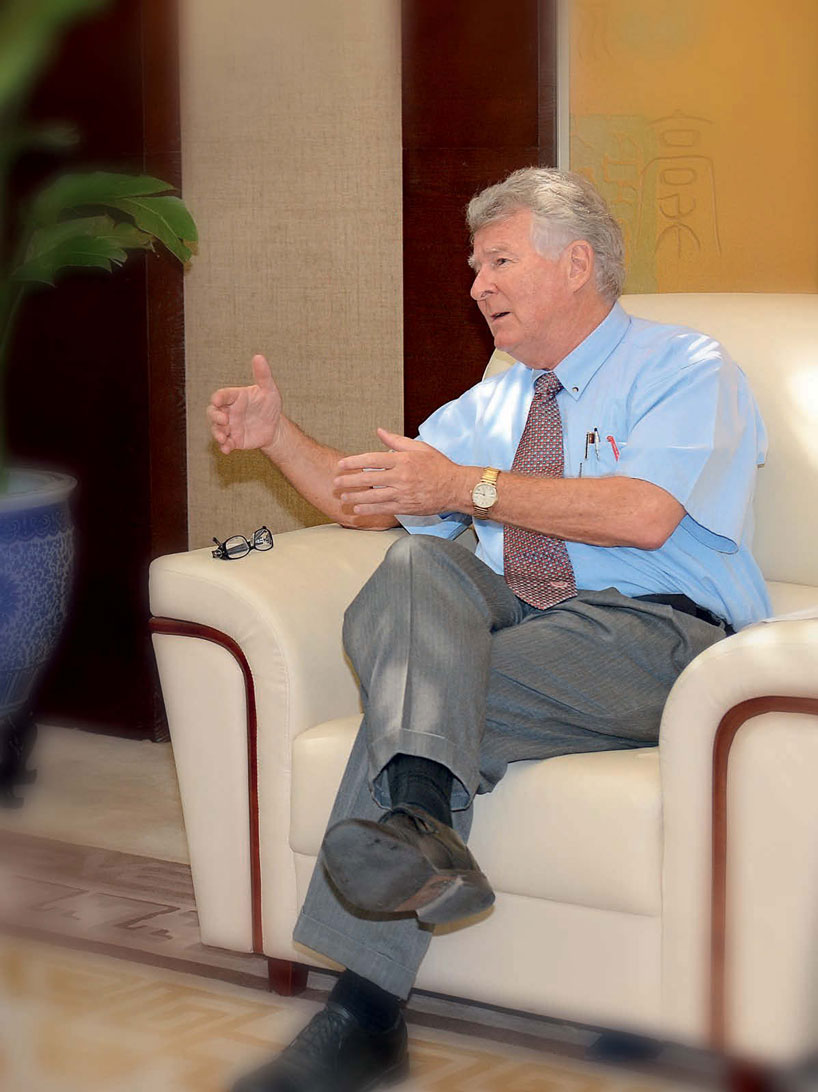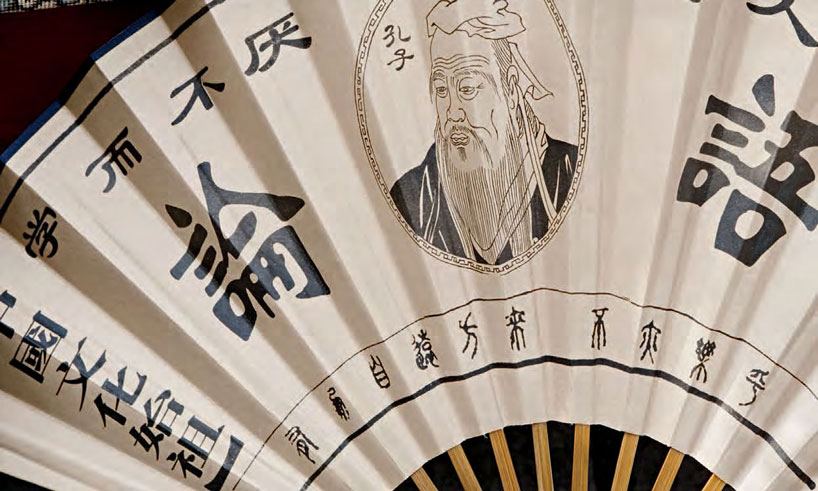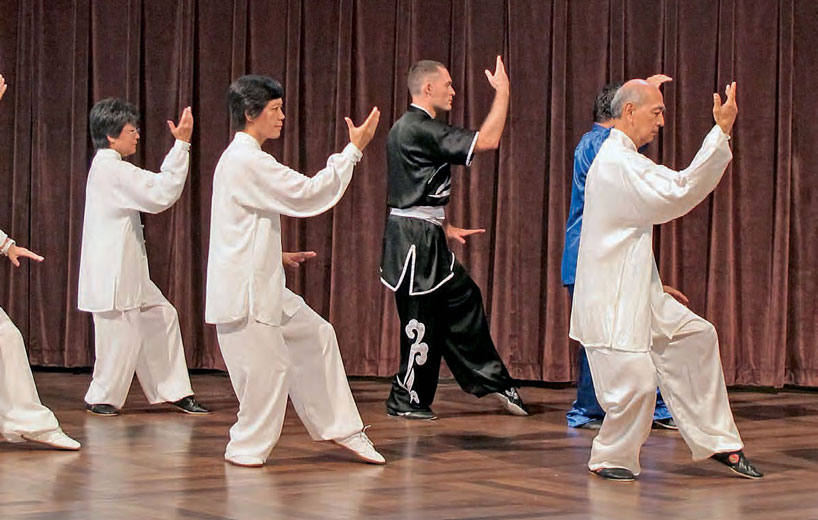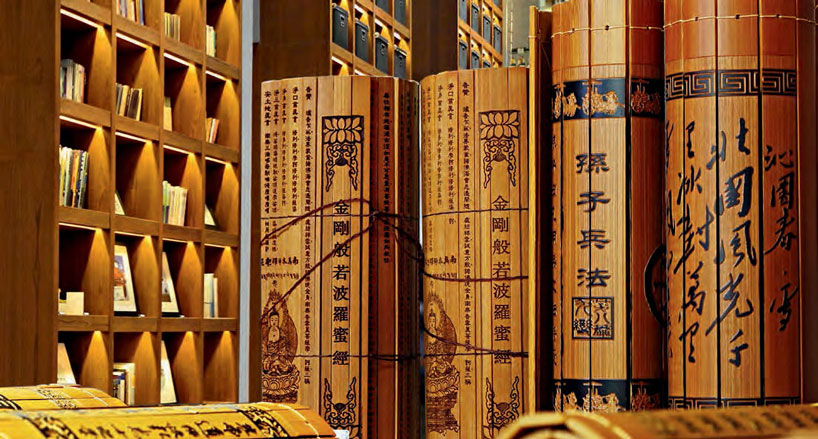Roger T. Ames: Finding pleasure and contentment in Philosophy
confuciusmag.com | Updated:2018-12-06In the fields of sinology and philosophy in the Western world, Roger T. Ames is currently one of the big names. His works have adressed centuries-long misunderstandings of Chinese philosophical ideas that have prevailed in the West, and have opened a new space for dialogue in philosophy and culture between China and the outside world.

An interview with Professor Roger T. Ames, Department of Philosophy, University of Hawaii, the U.S.
Confucius Institute Reporter Cheng Ye
Interview notes:
With grey hair and a pair of spectacles perched near the end of his nose, he furrows his brows between amiable smiles. When Professor Ames, a leading Western scholar in the field of Chinese-Western comparative philosophy, sits in front of me and tells me the story of his affinity with Chinese philosophy, he looks so kind, learned, refined — and very “Chinese”.
In the fields of sinology and philosophy in the Western world, Roger T. Ames is currently one of the big names. His unique interpretations and translations have changed a whole generation’s view of Chinese philosophy in the West and have made the profound ideas found in Chinese classics more and more accessible to Westerner readers. His works have adressed centuries-long misunderstandings of Chinese philosophical ideas that have prevailed in the West, and have opened a new space for dialogue in philosophy and culture between China and the outside world.

Personal Profile:
Born in Toronto, Canada, in 1947, Roger T. Ames is professor of philosophy at the University of Hawaii, director of the Asian Studies Development Program of the University of Hawaii and the East-West Center, editor of both Philosophy East and West and China Review International, and former director of the Center for Chinese Studies at the University of Hawaii.
His research interests center on Chinese-Western comparative philosophy, and have resulted In comparative studies of Chinese and Western philosophy, and the application of such studies In the translating of Chinese philosophical classics into English. His series of works on Chinese-Western comparative philosophy includes Thinking from the Han: Self, Truth, and Transcendence in Chinese and Western Culture and Anticipating China: Thinking Through the Narratives of Chinese and Western Culture. His translations of Chinese philosophical classics include The Analects of Confucius: A Philosophical Translation, Sun-tzu: Tha Art of Warfare, Sun Bin: The Art of Warfare, The Art of Rulership (Book Nine of the Huai Nan Tzu), Dao De Jing: A Philosophical Translation, and Focusing the Familiar: A Translation and Philosophical interpretation of the Zhongyong.

Reporter: Could you tell us briefly how you first came into contact with Chinese culture?
Roger T. Ames: I went to Hong Kong when I was a curious 18 years old, and discovered a new world. Their way of thinking, way of living, and even their way of eating were all so different and this intrigued me greatly. I guess I was luckier than most, because I had distinguished teachers, congenial classmates, and an excellent research environment Moreover, for most foreigners the pattern of research was usually to examine first their own philosophical tradition, and then to turn to and look at that of other cultures. But in this special environment. I was able to study and compare both philosophical traditions at the same time.
My Chinese name (literally “finding pleasure and contentment in philosophy”) was given to me by my classmates. It suits me well since it is not only similar to my English name in pronunciation, but also references the saying in the Analects of Confucius “To just be fond of something is not as good as finding pleasure in it.”
Reporter: It is hard for Chinese people nowadays to read and undestand ancient Chinese philosophical classics and yet you have persisted in this interest. Have you encountered any difficulties in overcoming such obstacles as the language barrier?
Roger T. Ames: There have been many challenges. One of the biggest problems is our dictionaries. I early on noticed that Chinese-Chinese dictionaries arc importantly different from Chinese-English dictionaries. There has been a tendency for Westerner scholars to transplant Chinese texts into a Western interpretive context, and to fail to read them on their own terms. I try to go back to basics, that is, to interpret terms in accordance with their literal meanings. Some people have criticized me for straying from the traditional vocabulary of Sinology and thus being radical. But I would argue that I try to interpret Chinese philosophy with reference to its own cosmology-to let the tradition speak for itself-and I would thus claim to be more conservative. If we uproot Chinese philosophy and transplant it in the soil of another culture, that would be radical.

Reporter: What motivates you to continue in the field of philosophy?
Roger T. Ames: My interest motivates me. As an individual, I don’t think there is enough time to study all aspects of philosophy in one’s life, as there is an inexhaustible supply of materials that are worthy of research. However, this does not mean I will ever give up philosophy because I’m one of those “finding pleasure in it”.
Reporter: You have translated such Chinese philosophical classics as The Analects of Confucius and Huai Nan Tzu. In order to retain the original meaning of the texts, you have changed the English translations of many key Chinese words. For instance, you have replaced the generally accepted “benevolence” for ren (仁) with “authoritativeness”. In comparison with the original texts, do you think your translations are more acurate or do the reflect a new perspective?
Roger T. Ames: The word ”benevolence” is a relatively narrow, psychological disposition which bears little resemblance to the broad meaning contained in ren that references an entire person — the cultivated moral, aesthetic, religious, intellectual, and even physical habits that are expressed in one’s relations with others. “Authoritativeness” on the other hand attempts to capture the process of embodying the “authority” of the philosophical tradition, of participating fully in “authoring” and “reauthorizing” it, and to respond properly to the deference from others that such conduct inspires.
In translating key words in ancient Chinese philosophical works such as The Analects of Confucius, there are usually two choices. One is to coin a new English term and to try to retain as much of the original Chinese meaning as possible; the other is to transliterate the term and then annotate it with the many implications it expresses found in the canonical texts and other reference works. With regard to such concepts as li (理 ), ren (仁), yi (义), and so on. we have no effective ways to translate them directly into English because they do not have equivalents. They are integral to a conceptual structure that belongs to a specifically Chinese way of organizing the human experience and its cultural values.
Nevertheless, we have no problems using English to discuss the meaning of such terms and coming to a nuanced understanding of them. It is the same with understanding Western concepts in Chinese. Sometimes English words can be hard to translate but their meaning can be fully described in Chinese. For instance, although there was no such concept as the Abrahamic “God” in China, there are many Chinese words and expressions that can be employed to describe its meaning.
Since language is the tool we use to describe our culture and history, we can never separate language from its culture. Translation plays a very important role in cultural communication and innovation, where the translator serves as the communicator and facilitator. The meaning of original texts may be altered and even expanded in the process of translation and communication. The meaning of Confucianism that was once uniquely Chinese will grow and change in the process of internationalization, as it was when it was introduced into Korea, Japan, and Vietnam. We may compare it to a plant, where the same root can produce many different and sometimes hybridic flowers. Expansion is a good thing. Although it may on occasion cause misunderstandings, cultural growth through broadening our horizons will no doubt make new contributions to society. Through translation, the significance of a piece of literary work may become amplified. If the Dao De Jing was only available as a Chinese text, it would only have Chinese connotations. If, however, it is translated into other languages, it then becomes a work of greater significance, a canon of world culture. Dao De Jing in a foreign language will no longer be the same as the original, but it will have a new identity and purpose.

Reporter: You have been a visiting professor at many Chinese universities and young people in China. You have suggested that Chinese people are not confident enough in their own cultural heritage and they need to enhance their “self-understanding” in times of globalization.
Roger T. Ames: As we know, China today has made huge progress in its economic growth and political influence. When I went to Shanghai in 1985, the tallest building there was the Peace Hotel with twenty stories or so. Today there are more than 1,500 skyscrapers in Shanghai, more than New York City. Although the economic and political order of the world has been profoundly changed by China, unfortunately Chinese culture is still a puzzle to most foreigners.
With respect to the problems confronting China today, it has largely been due to the long night of historical oppression and interference by foreign imperialist countries that Chinese people lost confidence in their own cultural heritage. In my view, Chinese philosophy has much to say to the modern world, but many Chinese students nowadays show little respect for their own traditions, believing that they are conservative and obsolete. No matter at home or abroad, Chinese people have to strengthen their understanding of their own cultural heritage and reconnect with their own traditions.
The pace of China’s modernization and internationalization has been too fast. You can imagine that before China’s economic reforms, Chinese people had little contact with other countries and the understanding that citizens of foreign countries had of China was confined to what they saw in their own Chinatowns. Within one generation of just over thirty years, China has suddenly entered the international stage. There are historical reasons why Chinese people have come to doubt their own tradition and have turned to and want to team from the West. Indeed, some of the foreign ideas have provided them with inspiration. As Chinese culture by definition has been open and inclusive, Confucianism today can learn from the empirical methods of problem solving and a more scientific and rigorous approach to the production of knowledge. Learning, however, should never be one way, and the values promoted by Confucianism should not be underestimated. The West should learn from Confucianism about the great importance of values grounded in family and community, and the irreducibly social nature of the human experience.

Reporter: Do you think traditional Chinese philosophy and culture has a purpose in present-day life?
Roger T. Ames: “The prevailing ideology of individualism in the world today is very dangerous-individual actors at every level playing to win . We face many difficulties now, such as the greenhouse effect, population explosion, food shortage, infectious diseases and so on and so forth. Only through cooperation can these problems be solved, so we have to move from the individualistic model of winners and losers to a model of cooperation and mutual accommodation. Confucius said. “Authoritative persons establish others in seeking to establish themselves and promote others in seeking to get there themselves”
Fortunately for ancient Chinese philosophy, communication between Western and Chinese scholars is on the rise. I’ve heard about your Confucius China Studies Program. As I see it, Sinologists must develop a thorough knowledge of the language. The history, and the philosophy of China and its literature. Only then will they be able to undertstand and interpret Chinese tradition from a variety of different perspectives. We should first make sure that those who would take Chinese culture abroad fully understand Chinese philosophy and are in dialogue with it. If misunderstanding are not eliminated at the very beginning, they may become problematic when they are spread all over the world.
I think my own role is to understand and internationalize Chinese philosophy as a resource for a changing world culture. In our times, China ought to have its own voice, and its place at the table, and needs to be understood better.

Reporter: Many philosophical works, such as The Art of Warfare by Sun Bin, sell very well in U.S. What do you think is the reason for this?
Roger T. Ames: Sunzi is a way of thinking, and enables the reader to understand China in a better and deeper way. Many Western people of my generation have only known China from visiting Chinatowns. Nowadays all sorts of information is readily available and young people are very interested in China and want to go to China whether for business or as tourists. More and more people are starting to learn Chinese as China’s influence on the rest of the world continues to grow. In the future, Chinese language skills will be in demand so I said early on to my two sons, “You may choose whatever career you like, but you should learn Chinese” And they did.
To know about different cultures is very conducive to broadening one’s horizonts, expanding one’s way of thinking and enhancing mutual understanding. In my opinion, a pluralistic, multi-cultural world is the only way forward. To understand one another is the only way to resolve conflicts in the world.
Reporter: What do you think of the role Confucius Institutes play in popularizing Chinese language learning and promoting Chinese culture?
Roger T. Ames: The U.S. was one of the earliest countries to establish a Confucius Institute and there are now more than 100 Confucius Institutes in the U.S., which goes to show the popularity it enjoys there. When our university was about to establish a Confucius Institute, a reporter with The New York Times asked me: “Aren’t you afraid that the Chinese government is using your institution and its reputation as a platform to propagate its socialist propaganda?” I replied to this reporter that I was about to go to Wuhan University next semester as a Fulbright Scholar sponsored by the American government. How many professors are sent by the U .S. government to other countries? Germany has the Goethe Institute and France the Alliance Française, and Britain the British Council. so why can’t China have their Confucius Institutes?
In addition, we have frequent contact with Chinese universities. For instance, we’ve worked with Peking University for 25 years on cooperative projects. It is like going back home every time I am at Peking University.
Confucius Institutes are a good way to introduce China to the rest of the world. People should not judge China until they have a better understanding of China. Confucius Institutes provide people-to-people contact, which facilitates mutual understanding and reduces misunderstandings.
Reporter: You’ve been studying comparative philosophy between the East and the West for many years. Has Eastern philosophy or way of thinking influenced you?
Roger T. Ames: Certainly. What is particular about Confucianism is that it seeks to understand the human experience through observing everyday life and seeks the kind of refinement that lifts humans above of their animality. The ultimate goal of many Western religions is the salvation that will bike one to another world after death. Confucianism is quite different; it focuses more on our present life. Greek philosophy is basically about spiritual and theoretical ascent while Confucianism is about full social participation. In my opinion, the primacy given to vital relations in Confucian philosophy may revolutionize our understanding of global relations. The most significanat and lasting legacy of Confucian philosophy and its values is its emphasis on the cultivation of interdependent relationships that begin from family and extend outward to community and cosmos.
Chinese people attach greet importance to the family and family members have frequent get-togethers and dinners. When I host international delegations in Hawaii, we do it the American way by inviting a great many guests to dinner at our home where my wife and family would do the cooking and everyone would enjoy a BBQ. We enjoy organizing such events and have fun doing them.

 Fujian Public Security Registration Code: 35012802000271
Fujian Public Security Registration Code: 35012802000271